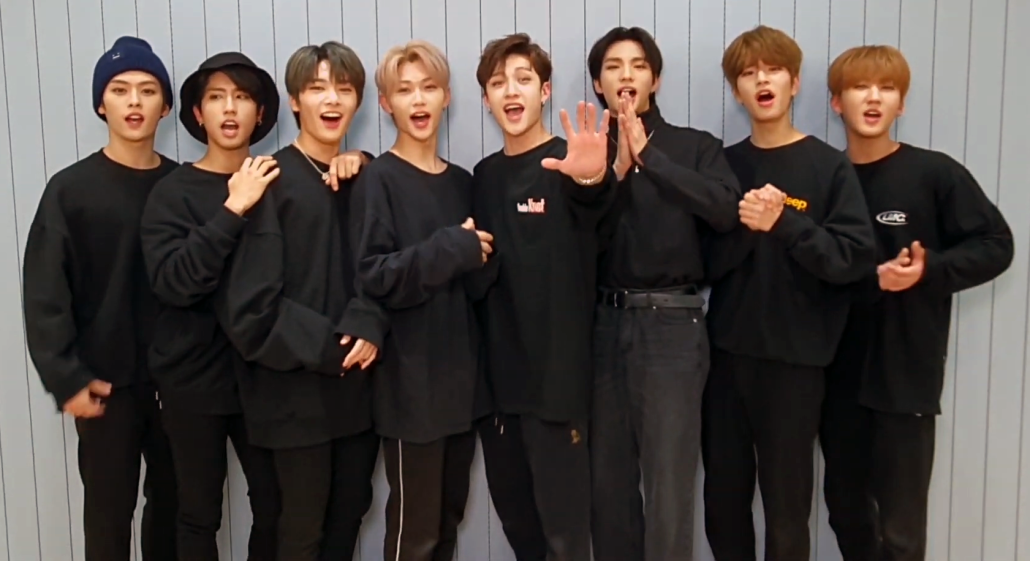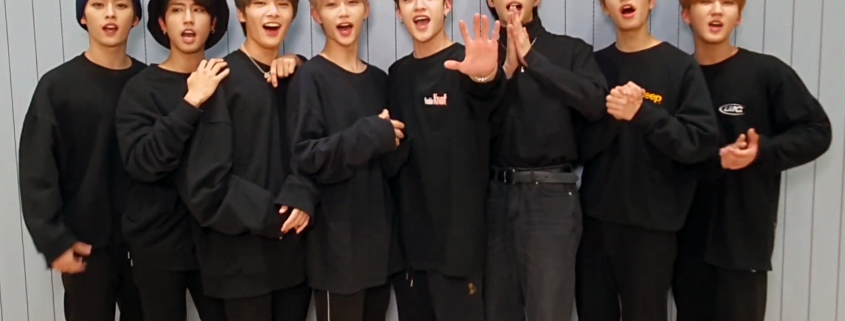Kacie on K-Pop: K-pop acts should utilize pop culture trends

If you know anything about me, you probably know about my natural infatuation with Lee Know, my favorite K-pop idol, and my utter dislike for superhero movies. Admittedly, the latter is a hot take, but it’s one I’ve stood by since high school. The movies can be unbearably long and confusing, but I think what annoys me the most is the cult followings that these franchises always seem to garner.
I know I’m definitely in the minority for feeling this way. My family knows not to ask if I’ve seen the latest Marvel movie because they already know the answer, and my friends laugh at me when I don’t understand their common pop culture references. But in the past, I remained unbothered.
In fact, it’s not until recently that I’ve started to wish I understood these movies — naturally, this desire stemmed from K-pop.
Last April, my favorite K-pop group, Stray Kids, participated on the Mnet competition show “Kingdom: Legendary War” alongside five other boy groups, all tasked with creating original performances of both their own songs and covers of other artists. The performances were ranked based on four criteria: a self-ranking by the groups themselves, evaluations by industry professionals, global fan votes and the YouTube view counts of the performances.
Because of the significant impact viewers had on the show’s performance evaluation process, fans of participating groups were understandably invested in not only streaming their favorite artist’s performance videos themselves but also promoting the videos to as many people as possible — whether they were fans of the group or not.
So, when Stray Kids performed their rendition of BLACKPINK’s “DDU-DU DDU-DU,” filled with references to Marvel’s “Deadpool,” including member Felix opening the stage in a Deadpool costume and breaking the fourth wall by conversing with the audience, STAY — the group’s fandom — had no issue accumulating views on the performance video from within the Stray Kids fanbase, the BLACKPINK fanbase and, most significantly, the wider Marvel fanbase. The performance video remains the most viewed of every performance from the entire competition, with over 30 million views during time of publication.
The video even caught the attention of Deadpool himself, with Ryan Reynolds interacting with Stray Kids leader Bang Chan on Twitter, referring to him as his “#NewFavouriteAustralian,” a lighthearted jab at “Wolverine” actor Hugh Jackman. Both would even go on to mail each other autographed merchandise — a Stray Kids album from Bang Chan and a bottle of American Aviation gin from Reynolds.
The exchange didn’t go unnoticed by STAY, and for good reason. Marvel is the most successful Hollywood film franchise in history, grossing over $22 billion at the global box office as of September 2021. The impact of major players in the Marvel franchise such as Reynolds and Jackman essentially promoting Stray Kids is exponentially larger than what any fanbase could do on its own.
Since the performance and subsequent exposure from Reynolds and Jackman, Stray Kids’ album sales have steadily climbed over their following two releases — their latest mini-album, “ODDINARY,’’ sold over 1.3 million pre-order copies. Reynolds himself promoted the mini-album on his Instagram story Friday, the day of its release, to the excitement of STAY around the world.
“ODDINARY” also included cues to the Marvel Cinematic Universe — something that correlated with Reynolds’ promotion, which he didn’t give to the group’s prior release which had no references to the MCU. The music video for title track “MANIAC” includes a visual reference to the Mirror Dimension, and the music video for B-side track “VENOM” includes imagery of spiders and parasites.
These subtle allusions to a film franchise with such a following are not only fascinating but also extremely strategic. By reimagining content from the MCU, people who follow Marvel but not necessarily Stray Kids are given a reason to check out the group’s music, which in theory, would result in the group gaining even more fans outside of their typical demographic.
The use of “concepts” in K-pop — general visual references and running themes in a group’s music video, costuming and set design throughout an album promotion — is nothing new, with groups commonly using concepts like school (see BTS’s “Boy in Luv” or STAYC’s “ASAP”) and racing (TREASURE’s “JIKJIN” or CRAVITY’s “My Turn”). However, it’s Stray Kids’ monopolization of such a distinctive concept, with an even more significant following, that truly sets them apart and establishes their strategy as one other groups should aim to follow.
In an industry dominated by the competition to consistently stand out in order to attract new fans, it is clear that Stray Kids is already a step ahead. As out of character as it may seem, I know I’d join their cult following in a heartbeat — perhaps I already have.
Kacie Yamamoto is a junior writing about Korean pop music. She is also an associate managing editor at the Daily Trojan. Her column “Kacie on K-pop” runs every other Thursday.

